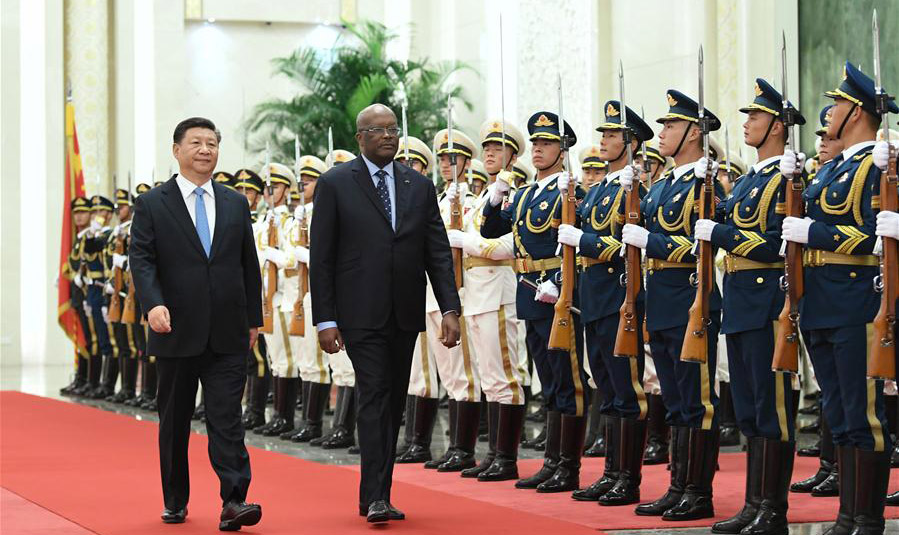BERLIN, Aug. 31 (Xinhua) -- German Social Democrat (SPD) leader Andrea Nahles has issued a warning on Friday against a hasty exit from national coal power generation in Germany without taking the impact thereof on regional unemployment into account.
Speaking to the magazine "SPIEGEL", Nahles attacked the Green party (Gruene) for condemning steel workers to material deprivation by pursuing radical climate policies in this context. "The Greens are seeking to protect the climate with a state-ordered decommissioning of coal power plants without taking care of the local population in affected areas", the SPD leader complained.
Nahles added that it was "unacceptable" for the SPD to reduce issues surrounding man-made climate change to coal. While nobody denied that coal power needed to be phased out in Germany, the party would not support any measures which did not open up new opportunities to people whose livelihood currently depended on employment in the sector.
"Inhabitants of the Lausitz or Rhineland (coal mining areas) are well aware that coal is not the energy source of the future", Nahles said. The key challenge faced by policymakers was to ensure a "successful structural transformation" which led to the creation of new well-paid jobs.
The comments were interpreted in some media reports as an attempt by an SPD which has recently languished in polls to ward off a growing electoral challenge from the Green party in Germany. Nevertheless, the appeal made by Nahles in "SPIEGEL" echoed earlier calls by the mining trade union IG Bergbau, Chemie and Energie (IG BCE) for legislators to soften the blow of the planned exit from coal power.
"The coal miners know that there is an expiry date on their profession", IG BCE president Michael Vassiliadis told Deutsche Presse Agentur (dpa). He emphasized that large-scale investment was needed to make former German coal mining areas more attractive as locations for high value-added industrial manufacturing rather than low-skill, low-wage professions.
The official "Growth, Structural change and Employment" commission established by Berlin to oversee the challenging transition has announced that it will present a plan until the end of October of how to manage and finance structural change in the affected regions. Concrete and related proposals for how the federal government can come closer to achieving targets for carbon dioxide (CO2) reduction by 2020 will be unveiled shortly thereafter.











